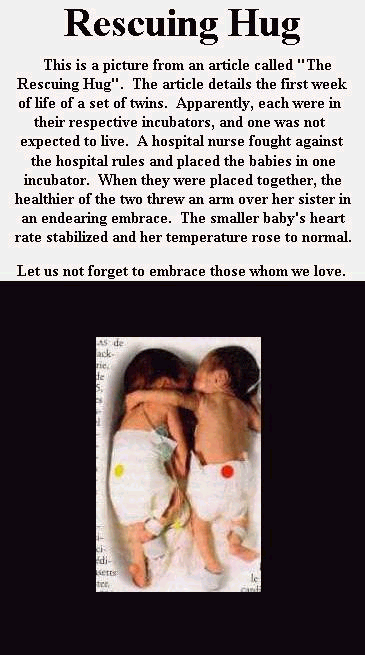 Disabilities Advocate  Lynn Royster, PhD - CFIDS Advocate "In September, 2003, DePaul University’s School for New Learning announced the introduction of a Chronic Illness Initiative designed to assist students with chronic fatiguing and relapsing illnesses to obtain their BA degrees. The program is the brainchild of Lynn Royster, PhD, a faculty member at DePaul University ’s School for New Learning, and the mother of PWC, Patrick Holaday. “I watched my son (now 29) struggle to go to college only to be thwarted over and over again by severe relapses, heavy bureaucratic requirements and uncomprehending faculty,” she said. “After I began to teach in the Distance Education Program, I saw a way that the program (which already had features that would be PWC-friendly) could be modified to eliminate some of the additional roadblocks that chronically ill students face." The Chronic Illness Initiative has four main features: No physical presence on campus is required. Students can obtain a DePaul degree entirely on line. However, if students wish to do so, they may also take classes on campus. Flexible time requirements. Students may take as long as necessary to complete their degrees, taking one course or a full load, as their condition dictates, and if they must drop out, they may complete a course whenever they are able. “Online courses are archived,” points out Royster, “so a student will not have to miss out on the discussions." Assistance from a special advisor. Students who indicate their need for the special services may consult with an advisor knowledgeable about the difficulties they face. Dr. Royster is currently serving in this capacity. Informed and compassionate faculty and staff. Those who teach in the program will be given training in what to expect from students with chronic illnesses and how to respond compassionately and effectively. The Chronic Illness Initiative is housed in DePaul’s School for New Learning (SNL), a program designed for returning students. The SNL BA program has several features in addition to the Distance Learning Program that already make it particularly appealing to PWCs. First, because most students have jobs and family responsibilities, faculty and staff are accustomed to working with people who do not have a lot of extra time. Second, the program has liberal transfer requirements and allows students to document previous college level learning whether acquired in class, on the job, or in the community. Once properly documented, students may receive college credit for such learning. Other aspects of the SNL Program include lower tuition than most private universities, state of the art technology with prompt, responsive technical support, individually designed focus areas (similar to majors) and the opportunity to earn a fully accredited DePaul University degree. Financial aid is also available. There are a few limitations. Students must be computer capable, they must be self-directed and they need to be able to handle the writing requirements of online classes. They should also have clear future goals, because a portion of the program is designed to assist them in their achievement of those goals.  Advocacy Links National Multiple Sclerosis Society "The Society and its network of chapters nationwide promote research, educate, advocate on critical issues, and organize a wide range of programs including support for the newly diagnosed and those living with MS over time." NC clinical facilities affiliated with the MS Society. The FMS Community Support & Advocacy site includes newsletter. I got one of their newsletters which included an advocacy note. "How do we as disabled people become empowered? Self respect as well as our unwillingness to be demeaned is important. Besides having FMS, CFIDS and a few other chronic conditions, I have lost 65% of my hearing. (“Lost” being a silly term, since I am not likely to find it.) When I speak it is with a slight speech impediment since my hearing failure occurred during a childhood illness. For years I put up with stupid remarks about my speech and others’ displeasure when I asked someone to repeat themselves. In my late middle age, I am not so nice. I brook no stupid comments about my condition nor do I tolerate remarks that humiliate disabled people. Many people still believe that we are emotionally and intellectually impaired not just hearing or physically challenged. Recently, my close friend and fellow advocate Sabrina J’s daughter, who has a hearing and a speech disability, experienced cruelty and the hands of a truly ignorant person. My heart went out to Vanessa, I could feel my throat begin to close and I was sad that I could not protect her from this type of meanness. My god daughter suffers the same degree of hearing impairment that I do, but she was born that way, and speech is a challenge for her. Someone asked me recently what was wrong with her and while I chafed at the question, I answered it, because to educate is to advocate. Voting and playing as active a part in your community as your health permits are also empowering. For years disabled people did not vote in any significant numbers; this changed in the year 2000 and it must continue to change. If we do not want to see the programs and entitlements we need disappear, if we want special education and if we want the fully enabled to understand us, we had better be registered voters who cast their ballots. Some states have permanent absentee ballots for those who cannot stand in line at the polls. If your state does not, now is the time to find out what assistance and accommodation is available to the disabled voter. Find out what your community offers in the way of transportation to the polls. Until we are a recognized voting block, we will not be acknowledged. Register and vote. Hugs, Anne-Marie", Depression and Bipolar Support Alliance Royal College of Psychiatrists Changing Minds campaign. ""People suffering from mental disorders often attract fear, hostility and disapproval, rather than compassion, support and understanding," says Professor Arthur Crisp, Chairman of the Changing Minds Campaign. "Such stigmatisation not only causes people with mental health problems to feel isolated and unhappy, but may also prevent them receiving help and treatment." Research carried out among the general public at the start of the campaign in 1998 showed that stigmatising attitudes were common. In particular: Many people believed that those suffering from depression should "pull themselves together". People with schizophrenia and alcohol addiction were seen as dangerous. Anyone with a mental health problem was considered "difficult to talk to"." NAMI "NAMI is a nonprofit, grassroots, self-help, support and advocacy organization of consumers, families, and friends of people with severe mental illnesses, such as schizophrenia, schizoaffective disorder, bipolar disorder, major depressive disorder, obsessive-compulsive disorder, panic and other severe anxiety disorders, autism and pervasive developmental disorders, attention deficit/hyperactivity disorder, and other severe and persistent mental illnesses that affect the brain. Founded in 1979, NAMI today works to achieve equitable services and treatment for more than 15 million Americans living with severe mental illnesses and their families . Hundreds of thousands of volunteers participate in more than one thousand local affiliates and fifty state organizations to provide education and support, combat stigma, support increased funding for research, and advocate for adequate health insurance, housing, rehabilitation, and jobs for people with mental illnesses and their families." CHADD of Mecklenburg County "CHADD Works To Improve the Lives of People With Attention Deficit/Hyperactivity Disorder Through Education, Advocacy, and Support. ADA Game "The "ADA Game" is a new training, leadership, and community-building resource for anyone interested in the ADA and the rights of people with disabilities. The "ADA Game" challenges players with multiple-choice questions about the law and how it is applied to real-life situations. Players who answer questions correctly can earn points. These points can be applied to individual or group advocacy efforts. Players can use their points to make one of eight virtual "cities" in the Southeast Region more accessible for people with disabilities. Players can also discuss advocacy strategies or other ADA issues on the discussion boards. The "ADA Game" is fully accessible and easy to play. It is a powerful training and advocacy tool for anyone interested in disability policy, personal advocacy, or community enrichment. Players work together to improve accessibility in their virtual "cities" in the areas of program access, public accommodations, transportation, employment and communication. Players can also build their individual leadership scores in the areas of collaboration, ADA knowledge, problem solving, persistence and charisma. Players can only "win" the "ADA Game" by working together to build partnerships for accessibility in their virtual communities." The Health Care Problems Archive: A Collection of Problems with the U. S. Health Care System "The Health Care Problems Archive is dedicated to gathering information for the same purpose the orthopedic surgeon gathers information: to make possible diagnosis and treatment of a problem. Unlike the doctor, however, The Health Care Problems Archive does not attempt diagnosis or prescription. That's left to the reader. The Health Care Problems Archive does the first part of the surgeon's job. It collects information and assembles it for study. You can participate in two ways. First, you can share your experiences of shortcomings with the current health care system. Your writing will be identified only by your state and your profession. No other identifying information will be displayed. Second, you can use the information collected on the site to explore how and where the existing health care system fails. Armed with that knowledge, you can more accurately determine ways to fix or rebuild the current system (remember, in a democracy we are all responsible for diagnosing and fixing systems that don't work)." Everybody In, Nobody Out "Project EINO educates the public, encouraging state movement towards an equitable health care system guaranteeing universal access to care. Project EINO recommends focus on the 'Right to Health Care', as the best strategy to empower those communities most at-risk in the current system. . This shall be accomplished by support of grassroots organizing and empowering those communities most at-risk in the current system." Right to Health Care "What is the "Right to Health Care"? - a critical concept as this nation attempts to resolve the crisis of escalating health care costs and the increasing racial disparities and generally failing accessibility of health care. We feature philosophical debate, but our motivation is informed action, rather than academic debate." Project EINO "is an organizing effort intending to harness the public energy and available resources in the cause of Universal Health Care to be achieved by non-incremental means. Our strategic model is built upon the history of the "Right to Education" and how that right was achieved, namely through state-by-state struggle over the course of many years. Decisive federal support came only after most states had won "universal education" in the late 1840's." Constitution of the United States Law by Subject — Public Interest/Human Rights Law Links to various organizations websites. Law by Subject — Employment and Labor Law Stress Management Advocates are very prone to stress because we rock the boat and are politically incorrect and falsely accused. We tend to make waves and heartless, thoughtless, stubborn, ignorant, selfcentered, fearful people will criticise us despite our efforts are to help the disadvantage, the weak, the poor, the helpless, the sick, the innocent and the minority. (This is my site & I can speak my mind here. Remember the right to free speech. If you take offense, I'm sorry but what about the times you offend me or others like me and tell us that we're too sensitive?) Premium Tests "Our PhD certified Premium Tests are based on the most current and accurate research available. Each offers thought-provoking test questions, personalized analyses, and follow up emails that will encourage you to go after your goals and improve every relationship you have in your life — with friends, loved ones, even colleagues."  |